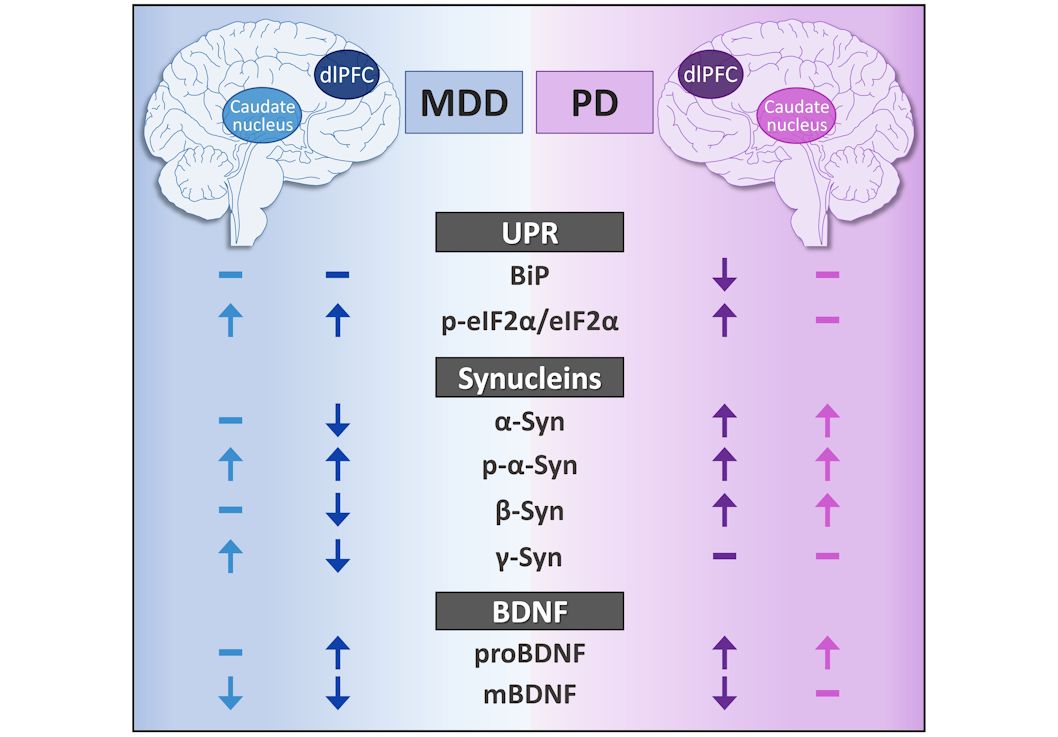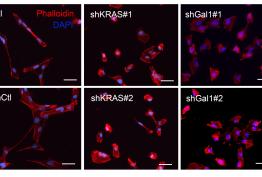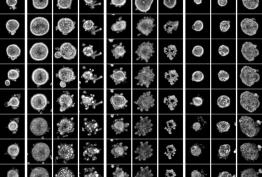New research using post-mortem brain tissue samples from patients with depression and Parkinson's disease reveals common changes in cellular pathways that control the quality of proteins in the brain. The study showed that proteins of the synuclein family, closely related to Parkinson's disease, are also altered in the dorsolateral cortex and caudate nucleus of patients with depression. The work was led by Analia Bortolozzi, principal investigator in the Systems Neuropharmacology Group of the IIBB - CSIC and the Mental Health area of the CIBER (CIBERSAM), and coordinator of the Translational Research Programme for Brain Disorders, IDIBAPS. The study was carried out in collaboration with Drs Luis Callado and Javier Meana, from the CIBERSAM group at the University of the Basque Country.
It is widely accepted that in neurodegenerative diseases there is an accumulation of insoluble protein aggregates, such as the α-synuclein protein in Parkinson's disease. In contrast, very little is known about the role of protein homeostasis in neuropsychiatric diseases. Some recent studies report the presence of some non-aggregated misfolded proteins in the brains of patients with depressive disorders. A key question is to understand how changes in protein levels or their conformational state ultimately affect their function in neurons and synapses.
The study, published in Progress in Neuropsychopharmacology & Biological Psychiatry, revealed abnormal activation of a signaling pathway in the endoplasmic reticulum, a cellular organelle responsible for maintaining protein quality. In this study, the authors found a comparable increase in levels of the eIF2α phosphorylated form in the dorsolateral prefrontal cortex and caudate nucleus of patients with depression and Parkinson's disease. At the same time, as expected, the authors found increased levels of α-synuclein and β-synuclein proteins in the brains of Parkinson's patients. However, most revealingly, decreased levels of these synucleins were detected in brain samples from patients with depression. Synucleins are proteins that concentrate in synapses and play a key role in the regulation of neurotransmission, synaptic plasticity and vesicle transport, processes that are deficient in depressive disorders.
The study also showed an accumulation of the immature form of the BDNF protein known as proBDNF and a reduction in the levels of the mature form mBDNF in both pathologies. Both proBDNF and mBDNF play a key role in promoting synaptic survival and plasticity. The balance between proBDNF and mBDNF depends on the activation of the endoplasmic reticulum, a dysfunction of which alters this balance, causing changes in the proteins that regulate synaptic plasticity, which are involved in the pathophysiology of depression and Parkinson's disease,’ explains Unai Sarriés-Serrano, first author of the article and researcher at CIBERSAM.
Depression is a serious psychiatric disorder that is the leading cause of mental health-related disability worldwide. It is a very common mood disorder that has a significant impact on psychosocial functioning and reduces quality of life, with negative effects on education, relationships and employment. In addition, depressive disorder is one of the most common non-motor symptoms in patients with Parkinson's disease and one of the most important predictors of poor quality of life in people with Parkinson's. The findings reported in this study provide clues as to the affected endoplasmic reticulum cellular pathway and the underlying protein levels in depression and Parkinson's, as possible targets for new therapeutic interventions.
The authors would like to give special thanks to the staff of the Basque Institute of Legal Medicine and the Biobank of the Hospital Clinic – IDIBAPS, Barcelona, for their collaboration in the study.
Link to the reference article:
Sarriés-Serrano U, Miquel-Rio L, Santana N, Paz V, Sancho-Alonso M, Callado LF, Meana JJ, Bortolozzi A. Impaired unfolded protein response, BDNF and synuclein markers in postmortem dorsolateral prefrontal cortex and caudate nucleus of patients with depression and Parkinson's disease.
Prog Neuropsychopharmacol Biol Psychiatry. 25 Feb 2025;138:111299. doi: 10.1016/j.pnpbp.2025.111299. Epub ahead of print. PMID: 40015617.
https://www.sciencedirect.com/science/article/pii/S0278584625000533?via%3Dihub







